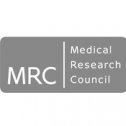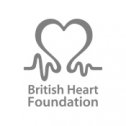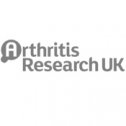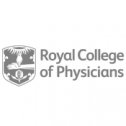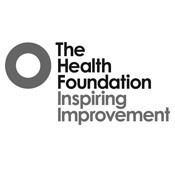Dr David Church, University of Oxford: Mechanistic and biomarker evaluation of POLE exonuclease domain mutations in colorectal and endometrial cancers
Dr Jayati Das-Munshi, King's College London: Health inequalities in ethnic minority service users with serious mental illness; understanding pathways to reduced life expectancy
Dr Rina Dutta, King's College London: Electronic health records to predict HOspitalised Suicide attempts: Targeting Information Technology solutions (e-HOST-IT)
Dr Virginia Newcombe, University of Cambridge: Optimised imaging for integrated serial evaluation in traumatic brain injury prognosis (OPTIMISE-TBI Prognosis)
Dr Estee Torok, University of Cambridge: Translating rapid bacterial whole-genome sequencing in clinical microbiology for patient benefit
Dr Gareth Ackland, University College London: Cellular and humoral mechanisms associated with improving surgical outcomes
Mr Luke Devey, University of Edinburgh: The role of antigen presenting cells and T regulatory cells in ischaemic preconditioning
Dr Jonathan Fallowfield, University of Edinburgh: Haemodynamic and anti-fibrotic effects of targeted therapies in models of cirrhosis and portal hypertension
Mr Damian Mole, University of Edinburgh: Preventing acute lung injury in pancreatitis by targeting gut tryphophan metabolism
Dr Barry Seemungal, Imperial College London: Vestibular perception of head velocity versus displacement: neuro-anatomical and clinical correlates
Dr Shiao-yng Chan, University of Birmingham: The role of monocarboxylate transporter 8 (MCT8) in human foetal brain development and the effects of intrauterine growth restriction
Professor Anna Gilmore, London School of Hygiene and Tropical Medicine and University of Bath: Developing and evaluating policies to reduce tobacco use and harm in the UK
Dr Rajesh Jena, University of Cambridge: Biological optimisation of radiotherapy treatment for patients with high-grade glioma
Professor Robert MacLaren, Moorfields Eye Hospital and University of Oxford: Development of new transplantation treatments for patients suffering from retinal disease
Professor Andrew McIntosh, University of Edinburgh: Neurocognitive abnormality in individuals at high risk of bipolar disorder or schizophrenia for genetic reasons
Dr Stephen Till, Imperial College London: Novel tolerance-inducing vaccines for allergic diseases caused by grass pollen
Fellowships awarded through the Academy of Medical Sciences, in partnership with the Health Foundation
Fellowships in Academic Surgery
Professor Peter Hutchinson, University of Cambridge: Neuroprotection after head injury: decompressive craniectomy and microdialysis
Professor Michael Douek, King's College London: Functional assessment of breast cancer angiogenesis using Doppler ultrasound and breast MRI
Mr Edwin Jesudason, University of Liverpool: Exploiting mechanical stimuli to increase prenatal growth of the hypoplastic lung
Ms Lorna Marson, University of Edinburgh: Macrophage-mediated killing of endothelial cells in chronic allograft nephropathy
Mr Gavin Pettigrew, University of Cambridge: T – B cell collaboration in alloimmunity
Professor Nicola Ragge, University of Oxford: A clinical and molecular genetic study of congenital microphthalmos-anophthalmos
Fellowships in Academic Radiology
Professor Mary Ann Rutherford, Imperial College London: An MR imaging programme to study the development of the human cortex
Dr Elspeth Whitby, University of Sheffield: Magnetic resonance imaging of the developing fetus
Fellowships in Anaesthesia
Dr Jonathan Coles, University of Cambridge: Temporal pattern and metabolic correlates of neuronal loss after human head injury
Dr Robert Stephens, University College London: The predictors of the human response to endotoxin
Fellowship awarded through the Academy of Medical Sciences, in partnership with the Primary Immunodeficiency Association
Dr Siobhan Burns, University College London: Defects of Dendritic Cell migration in Wiskott-Aldrich Syndrome

